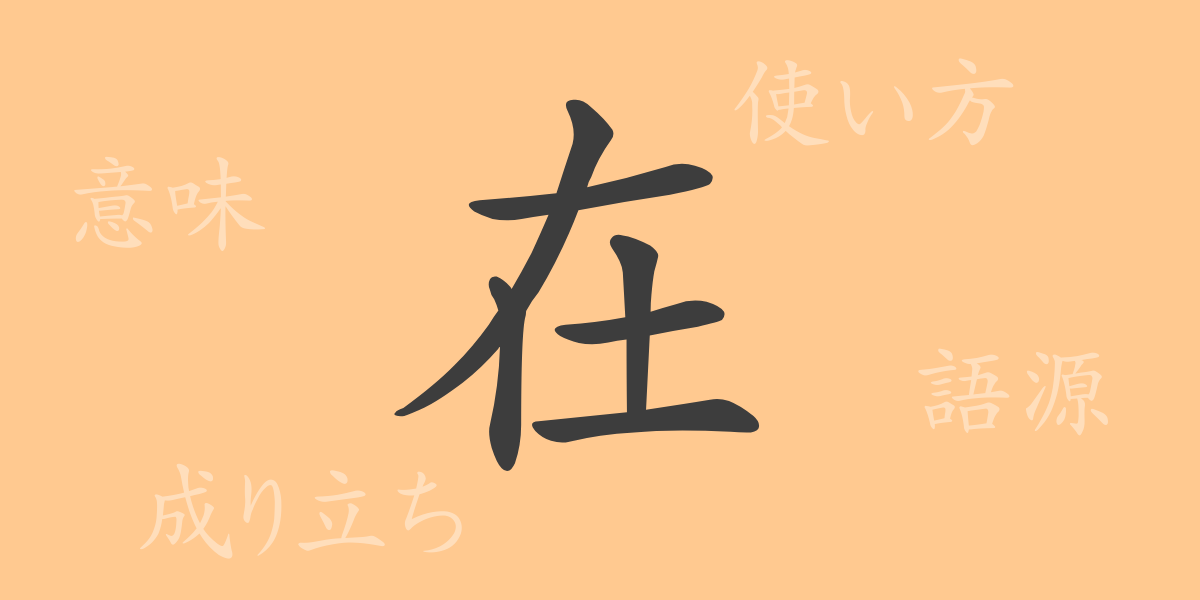The beauty of the Japanese language is greatly expressed through its complex and rich writing system. Kanji form the core of this system and are essential for a deep understanding of Japanese culture and language. This time, we focus on the common-use kanji “在” (zai), exploring its origins, meanings, usages, and expressions involving this character.
Origins of 在 (zai)
The kanji “在” (zai) has its origins in ancient China. Evolving from pictographs, this character originally depicted the concept of “existing on land.” Over time, its form and meaning transformed, becoming refined to signify “to exist” or “to be” as we know it today.
Meanings and Usages of 在 (zai)
In modern Japanese, “在” (zai) is used to mean “to exist” or “to be.” This applies not only to physical locations but also to abstract concepts and states. It is also used in words indicating a state of continuity, such as “在籍” (zaiseki), meaning “to be enrolled,” and “在宅” (zaitaku), meaning “to be at home.”
Reading, Stroke Count, and Radical of 在 (zai)
Understanding the readings and structural elements of the kanji “在” (zai) can help deepen your comprehension of Japanese.
- Reading: In the on’yomi reading, it is “ザイ” (zai), and in the kun’yomi reading, it is “あ.る” (a.ru).
- Stroke count: “在” (zai) has 6 strokes.
- Radical: The radical is “土” (つちへん, tsuchi-hen).
Idioms, Phrases, and Proverbs Using 在 (zai) and Their Meanings
Japanese has many idioms, phrases, and proverbs that include “在” (zai). For example, “在籍” (zaiseki) means “to be enrolled in an organization,” and “在宅” (zaitaku) means “to be at home.” Additionally, “在りし日” (arishi hi) nostalgically refers to days gone by.
Conclusion on 在 (zai)
The kanji “在” (zai) plays a significant role in the Japanese language. Understanding its origins, meanings, and usages not only enhances your language skills but also offers a journey into cultural understanding. Through this exploration, we hope readers have gained a deeper appreciation of the rich history and diverse applications of “在” (zai).

























